Panelists
Panel #1: The IoT revolution: Challenges and Opportunities
Panel organizer and moderator:
Amitava Ghosh (Nokia Bell Labs) – 1455 W. Shure Dr, Arlington Heights, IL, USA 60004

Amitabha (Amitava) Ghosh (amitava.ghosh@nokia.com) is a Nokia Fellow and Head, Small Cell Research at Nokia Bell Labs. He joined Motorola in 1990 after receiving his Ph.D in Electrical Engineering from Southern Methodist University, Dallas. Since joining Motorola he worked on multiple wireless technologies starting from IS-95, cdma-2000, 1xEV-DV/1XTREME, 1xEV-DO, UMTS, HSPA, 802.16e/WiMAX and 3GPP LTE. Dr. Ghosh has 60 issued patents, has written multiple book chapters and has authored numerous external and internal technical papers. He is currently working on 3GPP LTE-Advanced and 5G technologies. His research interests are in the area of digital communications, signal processing and wireless communications. He is a Fellow of IEEE, recipient of 2016 IEEE Stephen O. Rice prize and co-author of the book titled “Essentials of LTE and LTE-A”
Panelists:
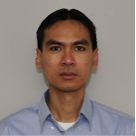
Rapeepat Ratasuk (rapeepat.ratasuk@nokia.com) received the Ph.D. degree in electrical engineering from Northwestern University, Evanston, IL, USA, in 2000. He worked for Motorola Networks from 1999-2011. He is currently a Principal Research Specialist with Nokia Bell Labs, Arlington Heights, IL. He has extensive experience in 3G/4G cellular system design and analysis, including algorithm development, performance analysis and validation, physical-layer modeling, and simulations. He is a co-author of the book titled Essentials of LTE and LTE-A. He has more than 50 issued patents and published more than 45 journal and conference papers. His current research interests are in the areas of 5G wireless networks and machine-to- machine communications.
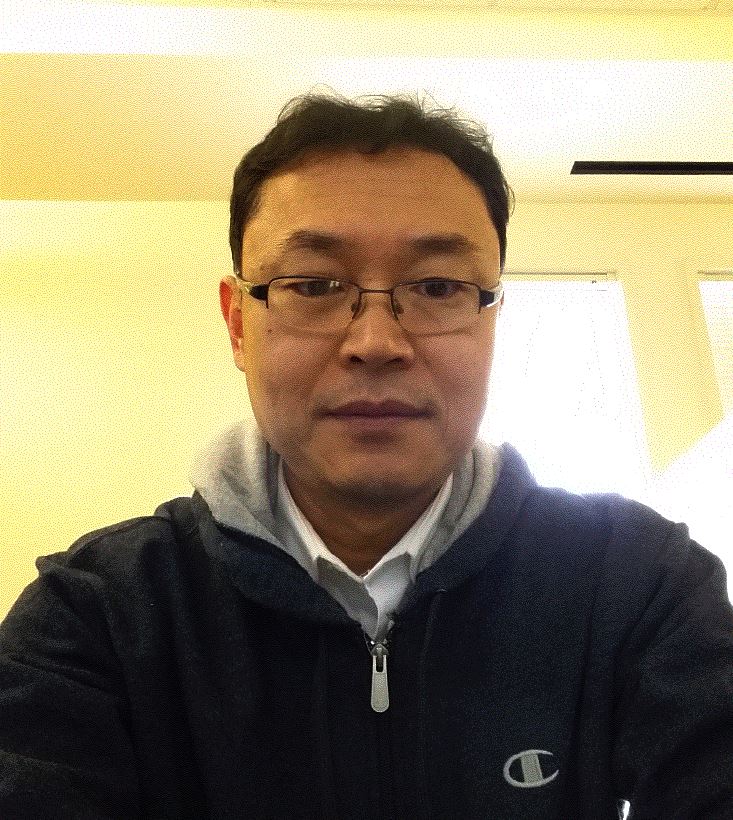
Dr. Song started his career with former Lucent Bell Labs in CDMA standard and system engineering twenty years ago. He later joined several start-up companies where he led the development and subsequent commercialization of several UMTS and TD-LTE terminal chips, some of them earliest in the industry. He is now with Verizon Network Planning group. Dr. Song has a Ph.D from WinLab, Rugters University in 2001.

Hao Xu (hxu@qti.qualcomm.com) Dr. Hao Xu received his B.S and M.S. from Moscow Power Engineering Institute and Technical University, Russia, in 1994 and 1996, respectively. He received his Ph.D. from Virginia Tech in 2000. During his Ph.D. research, he pioneered the millimeter-wave propagation research at 38 GHz and 60 GHz with Dr. T. Rappaport. In 1999, he received the IEEE Communications Society Steve Rice Award with Dr. G. Durgin and Dr. T. Rappaport. From 2000 to 2003, he worked at Bell Labs’ Wireless Communication Research Lab, where the first MIMO system (BLAST) was invented. His research led to one of the first outdoor MIMO channel capacity evaluations, and the joint 3GPP/3GPP2 spatial channel model (SCM). In 2003, he received the Bell-Labs President Gold Metal Award. Since 2003, he has being working at Qualcomm R&D, where his main research focus is on wireless communications system design. He has led various research and prototyping efforts, as well as 3GPP physical layer design topics. He is currently leading eMTC/NB-IoT research and standardization activities for 4G and 5G. He has numerous journal publications and patents, and also served a few years as an Associate Editor for IEEE Transactions on Wireless Communications.

Eric Wang (eric.yp.wang@ericsson.com) Y.-P. Eric Wang is a senior specialist at Ericsson Research, San Jose, California. He received the Ph.D. degree in electrical engineering from the University of Michigan, Ann Arbor, in 1995. In 2001 and 2002, he was a member of the executive committee of the IEEE Vehicular Technology Society and served as the society's Secretary. Dr. Wang was an Associate Editor of the IEEE Transactions on Vehicular Technology from 2003 to 2007. At Ericsson Research, his work includes coding, modulation, synchronization, MIMO, equalization, interference suppression and cancellation, heterogeneous network, and machine type communications. He was a co-recipient of Ericsson's Inventors of the Year award in 2006. Dr. Wang has contributed to more than 100 U.S. patents and more than 50 IEEE articles in the area of wireless communications.

Gaurav Bansal (gbansal@us.toyota-itc.com) Gaurav is a Senior Researcher at the Toyota InfoTechnology Center in Mountain View, CA, where he leads several research initiatives on the design of communication systems for Automated Driving. Gaurav is an expert in Vehicular Communications, pioneering contributions in Dedicated Short Range Communications (DSRC) congestion control and in innovative use-cases to leverage connectivity in cars. His current research interests also include millimeter wave & full-duplex wireless communications. Gaurav represents Toyota in the Automakers’ Vehicle Safety Communication Consortium and in the SAE, ETSI standardization bodies. Gaurav's paper on DSRC Congestion Control received the Best Paper Award at the IEEE WiVEC Symposium. He also holds several patents in the field. Gaurav serves in the editorial board of IEEE Communication Surveys and Tutorials Journal and IEEE Connected Vehicles Initiative. Gaurav holds Electrical Engineering degrees from Indian Institute of Technology, Kanpur and The University of British Columbia.
Panel #2: WiFi's Next Growth Spurt: From Teen to Adult
Panel organizer and moderator:
Andrea Goldsmith, Stanford University
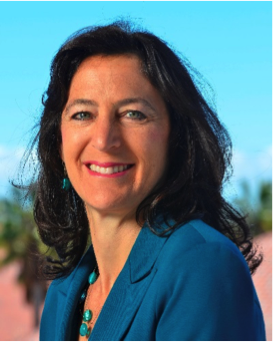
Andrea Goldsmith is the Stephen Harris professor in the School of Engineering and professor of Electrical Engineering at Stanford University. She also founded and served as Chief Technical Officer of Plume WiFi (formerly Accelera, Inc.) and of Quantenna (QTNA), Inc. Her research interests are in the design, analysis, and fundamental performance limits of wireless systems and networks, as well as in the application of communication theory and signal processing to neuroscience. Prior to Stanford she held positions at Caltech, Maxim Technologies, Memorylink Corporation, and AT&T Bell Laboratories. Dr. Goldsmith is a member of the National Academy of Engineering, a Fellow of the IEEE and of Stanford, and has received several awards for her work, including the IEEE ComSoc Edwin H. Armstrong Achievement Award as well as Technical Achievement Awards in Communications Theory and in Wireless Communications, the National Academy of Engineering Gilbreth Lecture Award, and the Silicon Valley/San Jose Business Journal’s Women of Influence Award. She is author of the book ``Wireless Communications'' and co-author of the books ``MIMO Wireless Communications'' and “Principles of Cognitive Radio,” all published by Cambridge University Press, as well as an inventor on 28 patents. She has served in various leadership roles in the IEEE and in professional organizations aimed at diversifying STEM fields. At Stanford she served as Chair of Stanford’s Faculty Senate and for multiple terms as a Senator, and currently serves on its Budget Group, Committee on Research, Planning and Policy Board, and chairs the EE Student Committee.
Panelists:
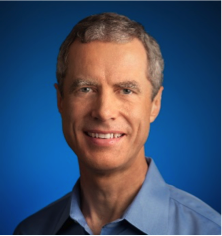
Craig Barratt is an industry leader in wireless technology and communications. From 2013 to 2017, he was an SVP at Google, and CEO of Alphabet’s Access division, which includes Google Fiber, the gigabit-speed internet service. Prior to Google, Craig was President and CEO of Atheros, one of the semiconductor pioneers of Wi-Fi, where he led its public offering in 2004 and sale to Qualcomm in 2011. Craig holds PhD and Masters degrees in electrical engineering from Stanford University, and B.Eng. and B.Sc. degrees from the University of Sydney. He is the co-author of a book on Linear Controller Design, a co-inventor of 34 US patents, and several open source projects.

Dr. Heidari joined Quantenna since 2009, driving the company in developing the most advanced Wi-Fi hardware and software solutions to date – thereby enabling networking applications previously not thought possible. Quantenna recently completed its initial public offering in late 2016 and is listed on Nasdaq (QTNA). Prior to Quantenna, he served as chief technology officer and vice president of Engineering at Ikanos Communications Inc. He was president and CEO at Doradus Technologies Inc., which got acquired by Ikanos. Dr. Heidari has also held a variety of senior management and technical positions, within diverse sectors of the wireless and wireline communications and networking industries, at such firms as Sony Electronics, Linkabit Wireless Inc., and Torrey Communications Inc. Dr. Heidari is chairman of the board of directors for SiTune Corporation. He also serves on the Global Semiconductor Alliance Board of Directors and on the advisory board for the Department of Electrical Engineering at the University of Southern California. Dr. Heidari is a senior member of IEEE and holds more than 40 U.S. and international patents. He has authored multiple refereed journals and conference papers and has provided significant contributions, covering wireline and mobile technologies, to the standard organizations IEEE and ITU-T. Dr. Heidari was named a winner of the 2014 CEO/Executive of the Year by the Golden Bridge Awards and earned his M.S. and Ph.D. degrees from University of Southern California, and a bachelor’s degree in science from Northeastern University, all in Electrical Engineering.

Brian L. Hinman is the President, Chief Executive Officer and Co-Founder at Mimosa. For Brian, Mimosa is the culmination of a lifetime dedication to creating cutting-edge telecommunications products. Starting with video conferencing pioneer, PictureTel Corporation (formerly NASD: PCTL) and audio conferencing giant, Polycom (NASD: PLCM), Brian also led the way in the DSL industry as a founder of 2Wire (later acquired by Pace). Mimosa is the latest iteration of his vision to connect people through technology. In addition to his entrepreneurial efforts, Brian was also a Venture Partner at Oak Investment Partners where he focused primarily on investments in information technology and clean energy. An engineer by training, Brian is a specialist in digital signal processing and holds 30 patents in the telecommunications space. Brian has also served on the National Board of the American Electronics Association and was Director and Co-Founder of the International Multimedia Teleconferencing Consortium. In recognition of his entrepreneurial spirit, Brian has received multiple awards including the Ernst & Young Entrepreneur of the Year Award. Brian holds a BSEE degree, summa cum laude, from the University of Maryland and created the Hinman CEOs Program at his undergraduate alma mater. He also holds an S.M.E.E. degree from M.I.T. and an honorary Sc.D. from R.I. T.”
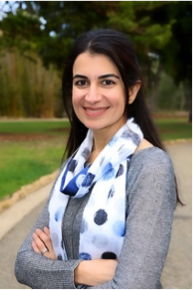
Yasamin Mostofi received her B.S. degree in electrical engineering from Sharif University of Technology, Tehran, Iran, in 1997, and her M.S. and Ph.D. degrees from Stanford University, Stanford, California, in 1999 and 2004, respectively. She is currently a professor in the Department of Electrical and Computer Engineering at the University of California Santa Barbara. Yasamin is the recipient of the Presidential Early Career Award for Scientists and Engineers (PECASE), the National Science Foundation (NSF) CAREER award, and the IEEE 2012 Outstanding Engineer Award of Region 6 (more than 10 Western U.S. states), among other awards. Her research is on mobile sensor networks. Current research thrusts include RF sensing, X-ray vision for robots, communication-aware robotics, human-robot networks, occupancy estimation, and see-through imaging. Her research has appeared in several reputable news outlets such as BBC, Huffington Post, Daily Mail, Engadget, and NSF Science360.
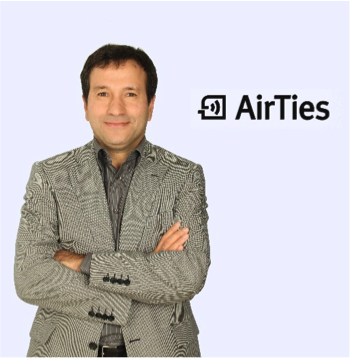
After working as a research engineer at the National Metrology Institute of the Scientific and Technical Research Council of Turkey (TUBITAK), Taskin continued his career in the United States: first at Hittite Microwave Corporation in Boston MA, designing radar and microwave communications system, and later at CISCO Systems in San Jose CA, in the Wireless Access Business Unit where he developed fixed wireless access devices. Taskin was responsible for system design outdoor wireless base station and subscriber devices providing wireless internet access. Taskin then joined the Wireless Networking Business Unit of CISCO as a system architect. He led team of 25 engineers that developed BR1410, an IEE 802.11a compliant Wireless Outdoor Bridge. Taskin received the “CISCO Innovator” award for a successful design and development of this product. Taskin moved back to Turkey to join the founding team of AirTies and currently works as the company’s Chief Technology Officer. Metin Taskin has a Bachelor’s degree in Electrical and Electronics Engineering and Master’s degree in Biomedical Engineering from Bosphorus University in Istanbul.
Panel #3: Battle of the Bands
Panelists:

Thomas Hazlett holds the H.H. Macaulay Endowed Chair in Economics at Clemson, conducting research in the field of Law and Economics and specializing in the Information Economy, including the analysis of markets and regulation in telecommunications, media, and the Internet. Prof. Hazlett served as Chief Economist of the Federal Communications Commission, and has held faculty positions at the University of California, Davis, Columbia University, the Wharton School, and George Mason University School of Law. His research has appeared in such academic publications as the Journal of Law & Economics, the Journal of Legal Studies, the Journal of Financial Economics and the Rand Journal of Economics, and he has published articles in the Univ. of Pennsylvania Law Review, the Yale Journal on Regulation, the Columbia Law Review, and the Berkeley Technology Law Journal. He also writes for popular periodicals including the Wall Street Journal, New York Times, Reason, The New Republic, The Economist, Slate, and the Financial Times, where he was a columnist on technology policy issues, 2002-2011. Prof. Hazlett also serves as Director of the Information Economy Project at Clemson University. He has provided expert testimony to federal and state courts, regulatory agencies, committees of Congress, foreign governments, and international organizations. His book, Public Policy Toward Cable Television, was co-authored with Matthew L. Spitzer (MIT Press, 1997).

Jon Peha is a Professor at Carnegie Mellon University. He has served at the Federal Communications Commission as Chief Technologist, in the White House as Assistant Director of the Office of Science & Technology Policy, in industry as Chief Technical Officer of three high-tech companies, and in the House Energy and Commerce Committee. At Carnegie Mellon, he is a Professor in the Dept. of Engineering & Public Policy and the Dept. of Electrical & Computer Engineering, and former Associate Director of the university's Center for Wireless & Broadband Networking. His research spans technical and policy issues of information networks. Dr. Peha holds a PhD in electrical engineering from Stanford. He is an IEEE Fellow and an AAAS Fellow, and was selected by AAAS as one of 40 Featured AAAS Science and Technology Policy Fellows of the last 40 years ("40@40"). Dr. Peha has received the FCC's "Excellence in Engineering Award," the IEEE Communications Society TCCN Publication Award for career contributions to spectrum research, and the Brown Engineering Medal.

Dr. Jeffrey H. Reed is the founder of Wireless @ Virginia Tech, and served as its Director until 2014. He is the Founding Faculty member of the Ted and Karyn Hume Center for National Security and Technology and served as its interim Director when founded in 2010. His book, Software Radio: A Modern Approach to Radio Design was published by Prentice Hall and his latest textbook Cellular Communications: A Comprehensive and Practical Guide was published by Wiley-IEEE in 2014. He is co-founder of Cognitive Radio Technologies (CRT), a company commercializing of the cognitive radio technologies; Federated Wireless, a company developing spectrum sharing technologies; and for PFP Cybersecurity, a company specializing in security for embedded systems. In 2005, Dr. Reed became Fellow to the IEEE for contributions to software radio and communications signal processing and for leadership in engineering education. In 2013 he was awarded the International Achievement Award by the Wireless Innovations Forum. In 2012 he served on the President’s Council of Advisors of Science and Technology Working Group that examine ways to transition federal spectrum for commercial use. Dr. Reed is a past member CSMAC a group that provides advice to the NTIA on spectrum issues.

Chris Stark is the Head of Strategy and Business Development for Nokia in North America. A seasoned telecoms executive, Chris previously held senior positions at Turin Networks, Luminous Networks and Alcatel. He also worked as an executive-level interim management consultant to start-up telecommunications companies, advising on business strategy, marketing, growth strategies, pricing and competitive analysis. Chris holds a bachelor’s degree in electrical and electronic engineering from Plymouth University in the United Kingdom.
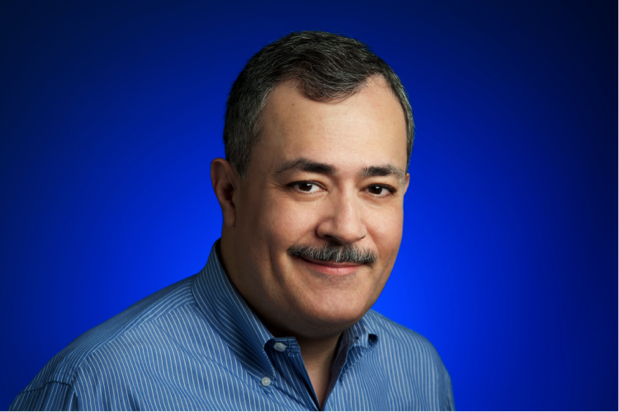
Milo Medin has been part of the Internet development community for more than 25 years. He is currently the vice president of access services at Google, where he oversees a number of projects to improve access to the Internet. Prior to joining Google in 2010, he was founder and CTO of M2Z Networks, a company that sought to deploy a national broadband wireless network system, and before then he was co-founder and the Chief Technology Officer of Excite@Home, where he led the development of the company's national infrastructure, and helped deliver the first large scale residential broadband access service in partnership with major cable operators, including the development of the DOCSIS cable modem standard. Earlier, Milo worked at NASA's Ames Research Center, where he developed the first peering point between backbone networks, and managed primary west coast interconnect for the Internet, and architected and managed the global NASA Science Internet, including the deployment of the first Internet connections to a number of countries around the world. Milo majored in computer science at UC Berkeley. He has participated in a number of public policy forums, including two National Academy of Sciences panels, given testimony in Congress and before the Federal Communications Commission on Broadband technology policy, and served on the PCAST working group on Spectrum Sharing. He holds several patents in the field of network access technology, and sits on the FCC’s Technical Advisory Committee.
Panel #4: Evolution or Revolution: 5G Technology and What it Will Enable Beyond 4G
Panel organizer and moderator:
John E. Smee
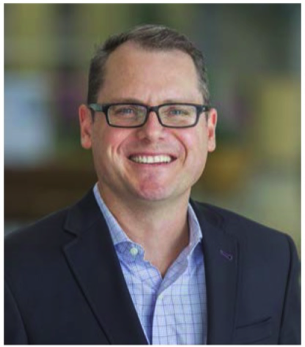
Dr. John E. Smee is a Vice President of Engineering at Qualcomm Technologies Inc. He joined Qualcomm in 2000, holds 54 US Patents, and has been involved in the system design for a variety of projects focused on the innovation of wireless communications systems such as CDMA EVDO, IEEE 802.11, 3GPP LTE and 5G. His work involves taking advanced system designs and signal processing techniques from theory through design, standardization, implementation, and productization. He is currently a 5G project engineering lead in Qualcomm's research and development group. John was chosen to participate in the National Academy of Engineering Frontiers of Engineering program and is a recipient of the Qualcomm Distinguished Contributor Award for Project Leadership. He received his Ph.D. in electrical engineering from Princeton University, and also holds an M.A. from Princeton and an M.Sc. and B.Sc. from Queen's University.
Panelists:
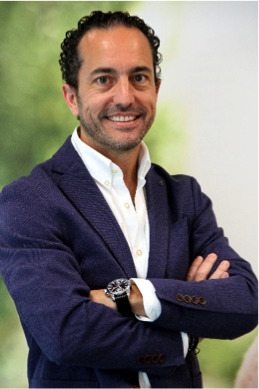
Santiago Tenorio is Head of Network Strategy and Architecture at Vodafone. His team has been recognized as one of the most influential teams in the industry, driving the development and adoption of cutting edge innovations such as advanced Active Antenna systems in Radio, Virtualisation and Software Defined Networks in Core and Transport. With over 150 patents, and some industrywide acclaimed developments such as SingleRAN his team is shaping the evolution of 4G towards 5G. Before his current role, Santiago was Chief Network Officer in Vodafone UK where he led the team to deliver best network performance, signed and implemented the Beacon network sharing agreement with Telefonica, delivered the best NW Performance during London 2012 and launched Vodafone’s 4G service in record time with great feedback and customer satisfaction.
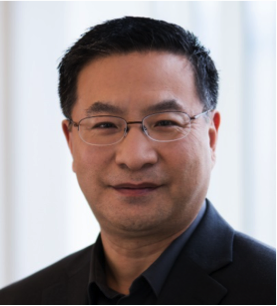
Dr. Geng Wu is the chief technologist for wireless standards and advanced technology at Intel Corporation, and an Intel Fellow. He leads Intel's fifth-generation (5G) wireless standards and technology development, works extensively with global research community and ecosystem partners. Dr. Wu’s current research interests include 5G mobile computing and communication platforms, future generation network architectures and devices, mmWave channel modeling, new air interface design and performance evaluation, and cross-layer optimization for future mobile services and applications.
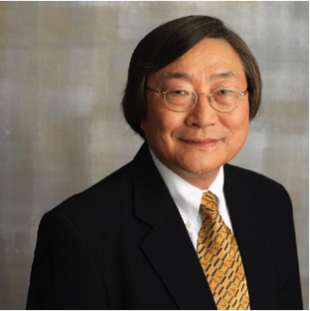
Byung K. Yi is InterDigital’s Executive Vice President, Chief Technology Officer. As CTO of InterDigital, Dr. Yi is responsible for directing the development of advanced wireless and network technologies, and the advanced researches related to Robotics, advanced cyber security systems for the IoT systems, and the platform for advanced wireless communications. Dr. Yi joined InterDigital in April 2014 from the Federal Communications Commission (FCC), where he had served as assistant division chief of engineering since 2012. Prior to his appointment at the FCC, Dr. Yi was at LG Electronics from 2000 to 2012,whereas Senior Executive Vice President he headed the company’s North American R&D center. A former member of InterDigital’s Technology Advisory Council, Dr. Yi contributes more than 30 years of advanced wireless development experience, satellite system designs, and aerospace communication and computer designs. Dr. Yi also contributes a strong history of industry leadership. He currently serves on the board of directors of the Telecommunications Industry Association and has served on the board of directors or steering committees of a number of professional organizations, including the Center for Wireless Communications, the 3rd Generation Partnership Project 2 Technical Specification Group, and a number of others. He was awarded the prestigious CDG (CDMA Development Group) Industry Leadership award, been recognized by the National Engineer Week (NEW) Foundation, and inducted to the Hall of Fame by the School of Engineering and Applied Science of George Washington University. Dr. Yi received his bachelor’s degree in electrical engineering from Yonsei University (Korea), his master’s degree in electrical engineering from the University of Michigan, and his doctoral degree in electrical engineering from George Washington University.
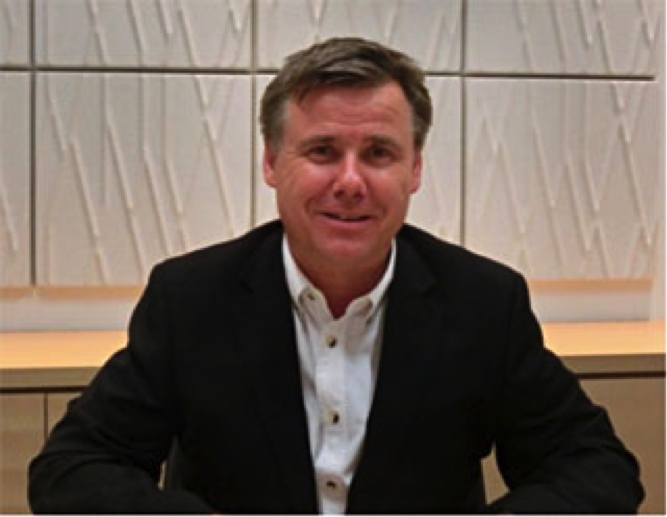
Erik Dahlman received the Master of Science degree and Doctor of Technology degree from the Royal Institute of Technology, Stockholm in 1987 and 1992 respectively. He is currently the Senior Expert in Radio Access Technologies within Ericsson Research. Erik Dahlman was deeply involved in the development and standardization of 3G radio access technologies (WCDMA and HSPA), first in Japan and later within the global 3GPP standardization body. More recently he has been involved in the standardization/development of the 3GPP Long Term Evolution (LTE) and its continued evolution. He is currently part of the Ericsson Research management team working with long-term strategies in the area of radio-access technologies. Erik Dahlman is the co-author of the book 3G Evolution – HSPA and LTE for Mobile Broadband and its follow-up 4G – LTE and LTE-Advanced for mobile broadband. He has also participated in three other books within the area of radio communication, as well as numerous journal papers and conference contributions. In 1998 he received the IEEE Jack Neubauer Best System Paper award for the paper WCDMA – The Radio Interface for Future Mobile Multimedia. Erik Dahlman holds more than 80 patents in the area of mobile-radio communication and has been named the Inventor of The Year within Ericsson. In October 2009, Erik Dahlman received the Major Technical Award, an award handed out by the Swedish Government, for his contributions to the technical and commercial success of the HSPA radio-access technology.
Panel #5: The Impact of NFV and SDN on Next Generation Communication Networks: Real or Virtual?
Panel organizer and moderator:
Anthony C.K. Soong, Huawei

Anthony C. K. Soong (S’88-M’91- SM’02-F”14) is currently the Chief Scientist for Wireless Research and Standards at Huawei Technologies Co. Ltd, in the US. His research group is actively engaged in the research, development and standardization of the next generation cellular system. He is a Fellow of the IEEE, has published numerous scientific papers and has more than 90 patents granted or pending. He received his Ph.D. from University of Alberta, the 2013 IEEE Signal Processing Society Best Paper Award and 3GPP2 2005 award of merit. Dr. Soong is a founder of OPNFV and served as a founding board member from 2014 - 2016 as well as Secretary of OPNFV for 2016. He currently serves as a board member of the Engineering College Industrial Advisory Board of The University of North Texas. He had served as the chair for 3GPP2 TSG-C NTAH (the next generation radio access network technology development group) from 2007-2009 and vice chair for 3GPP2 TSG-C WG3 (the physical layer development group for CDMA 2000) from 2006-2011.
Panelists:
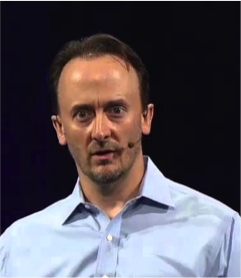
As the AVP of Cloud Infrastructure and Platform Architecture & Strategy for AT&T, Toby Ford leads efforts to enhance and streamline delivery of AT&T’s Cloud, Big Data, SDN, NFV and Orchestration platforms. Currently, Mr. Ford is responsible for shepherding SDN and NFV projects onto AT&T’s Integrated Cloud (AIC) platform. Mr. Ford joined AT&T via the acquisition of USi in 2006, where he was CTO. Mr. Ford is on the Board of Directors for the OpenStack Foundation.
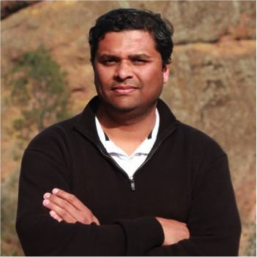
Sachin Katti is currently an Assistant Professor of Electrical Engineering and Computer Science at Stanford University. He recently received his PhD in EECS from MIT in 2009. His research focuses on designing and building next generation high capacity wireless networks using techniques from information and coding theory. His dissertation research focused on redesigning wireless mesh networks with network coding as the central unifying design paradigm. The dissertation won the 2008 ACM Doctoral Dissertation Award - Honorable Mention, the George Sprowls Award for Best Doctoral Dissertation in EECS at MIT. His work on network coding was also awarded a MIT Deshpande Center Innovation Grant, and won the 2009 William Bennett Prize for Best Paper in IEEE/ACM Transactions on Networking. His research interests are in networks, wireless communications, applied coding theory and security.
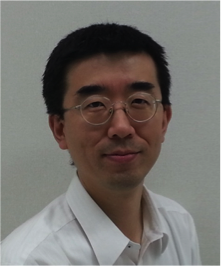
Tetsuya Nakamura serves as Principal Architect, Strategy and Innovation Group at CableLabs. Tetsuya is leading CableLabs’ open source research efforts on NFV and SDN, and the member of OPNFV End User Advisory Group and OpenDaylight Advisory Group. Before joining CableLabs, Tetsuya worked at NTT for about 17 years. While at NTT DOCOMO, Tetsuya was in charge of NFV investigation for mobile networks, and actively involved in the ETSI NFV ISG as ISG Vice Chair, Vice Chair of Technical Steering Committee, and Chair of Software Architecture WG. Also, Tetsuya was a founder of OPNFV and the initial Board member for NTT DOCOMO.

Dr. Sandra Scott-Hayward, CEng, is a Lecturer (Assistant Professor) at Queen’s University Belfast. She has experience in both research and industry, having worked as a Systems Engineer and Engineering Group Leader with Airbus before returning to complete her Ph.D. at Queen’s University Belfast. In the Centre for Secure Information Technologies at QUB, Sandra leads research and development of network security architectures and security functions for software-defined networks (SDN). She has presented her research globally and has published a series of IEEE papers on performance and security designs for SDN. Sandra is Vice-Chair of the Open Networking Foundation (ONF) Security Working Group and has received Outstanding Technical Contributor and Outstanding Leadership awards from the ONF in 2015 and 2016, respectively.
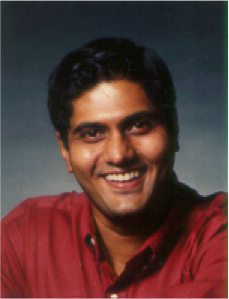
Subramanian (Vasu) Vasudevan is Head of Core, Cloud and Software Innovation Planning in the Mobile Networks CTO organization at NOKIA. He was previously Director of the Advanced Performance group and CTO Prime for Small Cells in the Wireless CTO at Alcatel-Lucent. He has worked on a number of air-interface technologies over the years including successful standardization, prototyping, and commercialization efforts. He earned a Bachelor’s degree in Electrical Engineering from the Indian Institute of Technology, Bombay, India, and a M.S and PhD from the University of Colorado, Boulder, at the Department of Electrical and Computer Engineering. He is a Bell Labs Fellow.
Panel #6: Promise Meets Reality: mmWave and Massive MIMO in Next-Generation Wireless Systems
Panel organizers and moderators:
Miguel Dajer, Huawei, Moderator
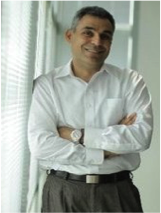
Miguel A. Dajer is a veteran of the telecomm industry having spent the last 25 years working in different wireless technologies at Bell Laboratories, Lucent, Alcatel-Lucent and Huawei. Mr. Dajer is currently the USA wireless R&D VP for Huawei Technologies. Mr. Dajer worked at Bell Laboratories, Lucent Technologies and Alcatel Lucent for the 25 years prior to joining Huawei Technologies in 2010. During his tenure at the wireless labs he occupied several key positions in Radio Access Network Hardware and Software product development and life cycle management, basestation platform development, systems engineering and architecture and technology introduction of wireless products. Since joining Huawei, Mr. Dajer has worked towards establishing a strong wireless solutions presence in North America along with innovation and technology labs that supports Huawei’s MBB product solutions. His lab research focuses on 4G evolution to 5G, new 5G network architectures for the support of massive connectivity, high bandwidth and delay sensitive applications, fundamental technologies to enable these solutions, including SoC and antenna systems and the role of big data and machine learning on wireless transmission systems.
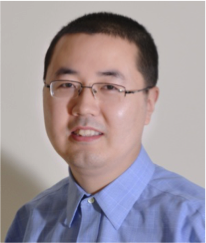
Yongxing Zhou is Vice President of Huawei Wireless Radio Access Technology Department and Head of MIMO and Spectrum Research Competency Center. He is currently working on 3GPP LTE-Pro and 5G technologies. Prior to 2014, he headed Huawei 3GPP LTE Standardization Team and particularly led development of LTE and LTE-Advanced technologies such as MIMO, FD-MIMO, CoMP, 3D channel modeling, ePDCCH and FDD/TDD Carrier Aggregation etc. Dr. Yongxing Zhou has more than 100 issued patents. Before joining Huawei, he was with Samsung from 2002 to 2009 working on IEEE 802.22, IEEE 802.11n standard and implementations as well as TDD related research. He received his Ph.D degree from Tsinghua University, China.
Panelists:
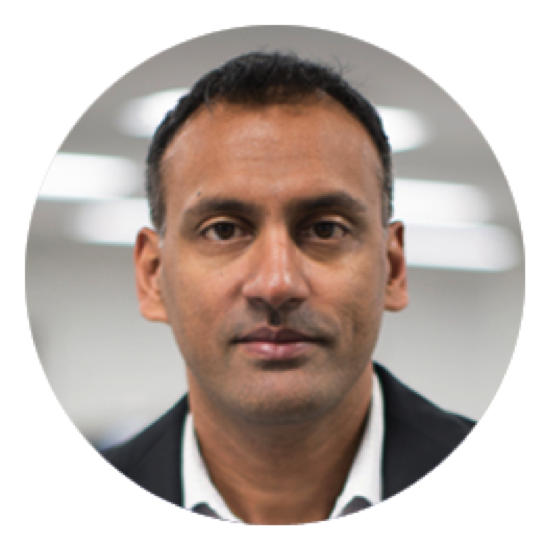
Sundeep Rangan received the B.A.Sc. at the University of Waterloo, Canada and the M.Sc. and Ph.D. at the University of California, Berkeley, all in Electrical Engineering. He has held postdoctoral appointments at the University of Michigan, Ann Arbor and Bell Labs. In 2000, he co-founded (with four others) Flarion Technologies, a spin off of Bell Labs, that developed Flash OFDM, one of the first cellular OFDM data systems and pre-cursor to 4G systems including LTE and WiMAX. In 2006, Flarion was acquired by Qualcomm Technologies where Dr. Rangan was a Director of Engineering involved in OFDM infrastructure products. He joined the ECE department at NYU Tandon (formerly NYU Polytechnic) in 2010. He is a Fellow of the IEEE and Director of NYU WIRELESS, an academic-industry research center researching next-generation wireless systems. His research interests are in wireless communications, signal processing, information theory and control theory.

Paulraj is an Emeritus Professor at Stanford University and works in wireless communciations. Paulraj's recognitions include the 2014 Marconi Prize and the 2011 IEEE Alexander Graham Bell medal. He is a member of eight National Academies including those of USA, China, India and Sweden. He is a fellow of IEEE and AAAS. In 1999, Paulraj founded Iospan Wireless Inc. which pioneered MIMO- OFDMA used in 4G technology. In 2003 co-founded Beceem Communications Inc. which became the leader in 4G / WIMAX chip sets. Paulraj is a Visiting Professor at the Beijing Institute of Posts and Telecommunications, Beijing, the Imperial College, London and the Indian Institute of Technology Madras.

Amitabha (Amitava) Ghosh is a Nokia Fellow and Head, Small Cell Research at Nokia Bell Labs. He joined Motorola in 1990 after receiving his Ph.D in Electrical Engineering from Southern Methodist University, Dallas. Since joining Motorola he worked on multiple wireless technologies starting from IS-95, cdma-2000, 1xEV-DV/1XTREME, 1xEV-DO, UMTS, HSPA, 802.16e/WiMAX and 3GPP LTE. Dr. Ghosh has 60 issued patents, has written multiple book chapters and has authored numerous external and internal technical papers. He is currently working on 3GPP LTE-Advanced and 5G technologies. His research interests are in the area of digital communications, signal processing and wireless communications. He is a Fellow of IEEE, recipient of 2016 IEEE Stephen O. Rice prize and co-author of the book titled “Essentials of LTE and LTE-A”.
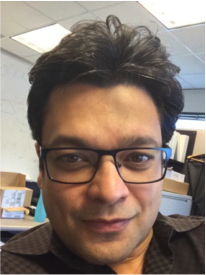
Dr. Arun Ghosh is the Director of Advanced Wireless Technology Group with AT&T Labs where he leads the development and implementation of advanced wireless technology for 4G and 5G radio access networks. Currently he is involved in the development and standardization of new technology for 5G mobile networks where his main area of focus are mmWave communication systems, massive MIMO systems and network architecture for 5G network, spectrum sharing, software defined radio access networks etc. He is also responsible for various 5G trial and testbed activities carried out in the 5G technology lab in Austin. His main area of research relates signal processing and communication theory but he has also worked extensively and other topics such as cloud RAN, advanced system architecture, etc. He has published extensively in these area and is a key contributor to AT&T patent portfolio on this subject. Dr. Ghosh has also authored several bestselling books on LTE and WiMAX. He received his PhD from University Illinois at Urbana-Champaign and his masters and bachelors from Indian Institute of Technology.

Dr. Pingping Zong is a Senior Principal Engineer in Intel Corporation. She is currently responsible for 5G trials technology coordination and ecosystem engagement in Intel’s Next Generation and Standards (NGS) group Wireless Technology team. Prior to her current role, Pingping has led the technology development team in NGS 3GPP standards team to develop 5G wireless technology, focusing on new air interface, new access network architecture and upper layer signaling design, as well as standardization strategy and operations work. Dr. Zong received her BS degree from Beijing University of Post and Telecommunications, and her MS and Ph.D. degrees from New Jersey Institute of Technology, all in Electrical Engineering.
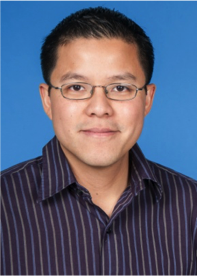
Dr. Ian C. Wong is Senior Manager of the Advanced Wireless Research group at National Instruments where he leads the company’s 3GPP and 802.11 wireless standards strategy and platforms for wireless system design, simulation, prototyping, and implementation. From 2007-2009, he was a systems research and standards engineer with Freescale Semiconductor where he represented Freescale in the 3GPP LTE standardization efforts. He was the Industry Program Chair for IEEE Globecom 2015 in Austin, the current Director of Industry Communities for IEEE Communications Society, and a senior member of the IEEE. His current research interests include 5G wireless systems design and prototyping, and design automation tools for rapid algorithm development. Dr. Wong is the co-author of the Springer book “Resource Allocation for Multiuser Multicarrier Wireless Systems,” has over 10 patents, over 25 peer-reviewed journal and conference papers, and over 40 standards contributions. He was awarded the Texas Telecommunications Engineering Consortium Fellowship in 2003-2004, and the Wireless Networking and Communications Group student leadership award in 2007. He received the MS and PhD degrees in electrical engineering from the University of Texas at Austin in 2004 and 2007, respectively, and a BS degree in electronics and communications engineering (magna cum laude) from the University of the Philippines in 2000.
Panel #7: Is 5G Ready for the Challenges of Emerging Markets?
Panel organizer and moderator:
Chaitali Sengupta (Moderator)
Consultant, Cirrus360, Former Vice President, Product Development and Engineering, Reliance Jio Infocomm
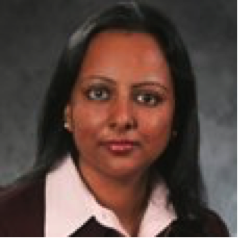
Chaitali Sengupta is an entrepreneur and expert in mobile networks and connectivity experience. Most recently she has been Vice President, Product Development and Engineering at Reliance Jio Infocomm, India, and Member of Board of Directors at Reliance Jio Messaging Services Pvt. Ltd. At Reliance Jio, she launched the first product under the fast growing “4G Jio” brand in India – with an application platform for social media, short content, and brand engagement, closely aligned with the Jio network and product eco-system. Before Reliance Jio, she was CTO and SVP engineering at SEVEN Networks, California, specializing in device based mobile traffic and signaling management. She joined SEVEN as part of its acquisition of SNRLabs, Texas, a mobile connectivity product start-up where she was a co- founder and CTO. Prior to that, she was at Texas Instruments as Distinguished Member, Technical Staff. Chaitali is a winner of MIT Technology Review magazine’s 2004 top innovators under 35 award and 2007 Outstanding Young Engineering Alumni award of Rice University. She has a PhD in Electrical Engineering from Rice University. She is the author of 12 patents and several book chapters and research papers.
Panelists:

Larry is Vice President of Product Definition at OneWeb, and was formerly a Director of Access Services at Google. He is the founder of Google’s Project Link, which is a project to bring shared infrastructure broadband networks to Africa. He has also had roles in Google’s project to bring Wi-Fi to the top 400 Indian rail stations, Google’s municipal Wi-Fi networks, Google's fiber to the home initiative, and Google’s FCC certified real-time spectrum database. Larry was a board member for O3b Networks and is co-chair of the US National Telecommunication and Information Agency’s Commerce Spectrum Management Advisory Committee. He holds a Ph.D. in Engineering from Stanford.
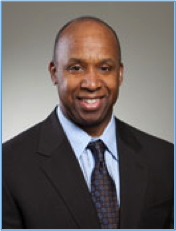
Allen S. Hammond IV is the Phil and Bobbie Sanfilippo Chair and Professor of Law at Santa Clara University and Director of the Broadband Institute of California. Professor Hammond has a publication record spanning thirty years. He is currently co-author of a forthcoming casebook (Aspen/Wolters-Kluwer, Pub.) on Regulation of Broadband Communications. His prior positions in government, private industry, the public interest and the academy include: attorney at the White House Office of Telecommunications Policy and program manager at the National Telecommunications and Information Administration; in house counsel for WJLA-TV, MCI Communications and Satellite Business Systems; public interest attorney at the Media Access Project; and professor at Syracuse University College of Law and the New York Law School. Professor Hammond is a former board member of the ACLU of Northern California, former president of the Alliance for Public Technology, and a past chair and member of the AT&T Telecommunications Consumer Advisory Panel. Professor Hammond has advised community based organizations throughout California and nationally, including Community Partners, the California NAACP, the California Community Technology and Policy Group, the California Small Business Association, the Great Valley Center, the Latino Issues Forum, the California Emerging Technology Fund, the Community Technology Foundation of California, the Media Alliance, the Hispanic Association for Corporate Responsibility, The Utility Reform Network, One Hundred Black Men (Albany, New York), the National Urban League, and the national NAACP, the National Black Media Coalition and the Multicultural Media, Telecom and Internet Council.

Deval “Dev” Parikh is currently the CEO and Executive Director of Brightstar-Beetel in India. Dev is responsible for steering Brightstar’s initiatives in India. Brightstar-Beetel is one of the largest diversified wireless distribution and services company globally as well as in India. Dev has been a business leader in the technology space for over a decade in a number of executive roles in the US as well as in India. He has built a consistent track-record in growing businesses from concept-stage to billion dollar+ scale in highly competitive environments. His experience spans domains of management consulting, venture capital, telecom, and semiconductor industries. Prior to Brightstar, Dev was at Reliance Jio where he was the Senior Vice President looking at a few nationwide initiatives including the head of the youth segment as well as the design and development of the products and services. One of his key contributions was to lay the deployment platform in connecting over 10,000 colleges on the state-of- the art Wi-Fi network at the lowest deployment cost. He has also seen the deployment of state-of- the art LTE and Wi-Fi networks across India and served as an executive CEO of Gujarat which involved deployment of $2BN in Capex. Before Reliance Jio, he served as an Entrepreneur in Residence (EIR) at Artiman Ventures, a SiliconValley based early-stage VC firm specialized in emerging technology areas and investment opportunities in India. He was one of the founding members of Virgin Mobile in India where he was the Chief Product Officer and helped set up the India operations. In his role he launched several path-breaking propositions including the world’s first unlimited music download service on handsets below $80, and the first unlimited daily data access service in India. Prior to his stint at Virgin Mobile India, he had a six-year tenure at Virgin Mobile USA, where his roles included Vice President of Handsets and Vice President of Planning and Operations. He was part of the team that helped the business grow from pre-revenue to over $1.4 billion in revenues leading to a successful IPO in 2007. He managed the end-to- end supply-chain and development chain from concept, to final sale at retailers resulting in sales of up to $500 million/year. Before Virgin Mobile, he was a management consultant for PRTM consulting (now PWC) focusing on telecom and technology areas. The projects spanned around areas of product strategy, supplychain and marketing. He also spent his formative years as an engineer at VLSI technology looking after semiconductor process technologies for the manufacture of ASIC's. He holds a Masters in Engineering Management from Northwestern University, and an MBA from the Kellogg School of Management in the USA. In addition, he completed his Bachelor's in Chemical Engineering and Bachelors in Economics with honors from North Carolina State University. Some of his work has been published in global periodicals including the Harvard Business Review.
Panel #8: Look Ma, no hands: intelligent transportation and the wireless networks that drive it
Panelists:
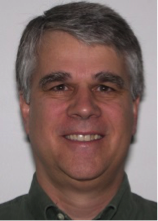
Dr. John Kenney is Director of networking research and a Principal Researcher at the Toyota Info Technology Center in Mountain View, California. He represents Toyota in international standards organizations and industry research consortia. He also represents Toyota in DSRC Spectrum Sharing discussions with the US Government and the Wi-Fi industry. Prior to his work with Toyota, John was a member of the Tellabs Research Center and an Adjunct Professor at the University of Notre Dame. He has graduate degrees from Stanford and Notre Dame.
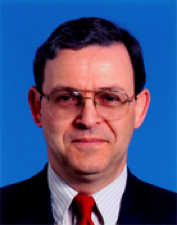
Dr. Steven Shladover has been researching road vehicle automation systems for more than forty years, beginning with his masters and doctoral theses at M.I.T. He is the Program Manager, Mobility at the California PATH Program of the Institute of Transportation Studies of the University of California at Berkeley. He led PATH’s pioneering research on automated highway systems, including its participation in the National Automated Highway Systems Consortium from 1994-98, and has continued research on fully and partially automated vehicle systems since then.

Jim Misener leads automotive standards activities for Qualcomm. In this role, he participates externally in many standards fora, to include being immediate past Chair and current Vice Chair of the SAE DSRC Technical Committee and participation as US ISO TC204 expert and in with IEEE 1609 and with LTE technologies 3GPP. Recently, Jim was instrumental in founding and is on the Board of the 5G Automotive Association, with other founding members Audi, BMW, Daimler, Ericsson, Huawei, Intel and Nokia. Given these standards and industry engagements and Jim’s extensive work in the past as an early pioneer and long-time leader in vehicle-highway automation and vehicle-safety automation, Jim also provides broad internal consultation and support to Qualcomm with automotive and transportation matters on emerging technologies, standards, deployment and spectrum issues.
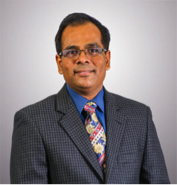
Ravi Puvvala is the Founder & CEO of Savari. Savari is an equipment vendor in the automotive & smart city markets. They build road side units for the city’s infrastructure and after-market products inside cars for collision avoidance, traffic congestion avoidance. Their products are qualified by USDOT and are part of many city wide deployments throughout North America. Mr. Puvvala has been involved as a consultant to automotive consortiums like Crash Avoidance Metrics Partnership, an advisor to university research centers, startup incubation centers in transportation space. He is an avid speaker at various conferences on the topic of connected vehicles. Prior to Savari, he was part of many Silicon Valley based startup companies that were acquired by multi-national companies. Mr. Puvvala has received his BS and MS from Bangalore University in India & Arizona State in USA.
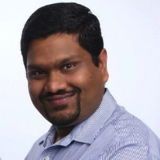
Vaibhav Garg got his PhD. from University of Florida at Gainesville in Electrical Engineering. He joined Texas Instruments as an analog IC design engineer, leading development of complex mixed signal ICs for automotive applications such as sensors, body and safety critical functions. He currently manages a Systems team defining next generation products in the areas of position and proximity sensing, focusing on automotive and industrial applications. He is a member of the Texas Instruments technical staff and has co-authored multiple patents.
Panel #9: The Crazy New World Enabled by the 5G Tactile Internet
Panel organizer and moderator:
Gerhard P. Fettweis
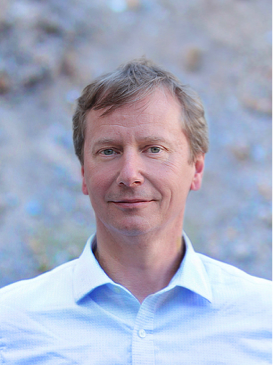
Gerhard P. Fettweis earned his Ph.D. under H. Meyr's supervision from RWTH Aachen in 1990. After one year at IBM Research in San Jose, CA, he moved to TCSI Inc., Berkeley, CA. Since 1994 he is Vodafone Chair Professor at TU Dresden, Germany, with 20 companies from Asia/Europe/US sponsoring his research on wireless transmission and chip design. He coordinates the 5G Lab Germany, and 2 German Science Foundation (DFG) centers at TU Dresden, namely cfaed and HAEC. Gerhard is IEEE Fellow, member of the German Academy of Sciences (Leopoldina), the German Academy of Engineering (acatech), and received multiple IEEE recognitions as well has the VDE ring of honor. In Dresden his team has spun-out sixteen start-ups, and setup funded projects in volume of close to EUR 1/2 billion. He co-chairs the IEEE 5G Initiative, and has helped organizing IEEE conferences, most notably as TPC Chair of ICC 2009 and of TTM 2012, and as General Chair of VTC Spring 2013 and DATE 2014.
Panelists:
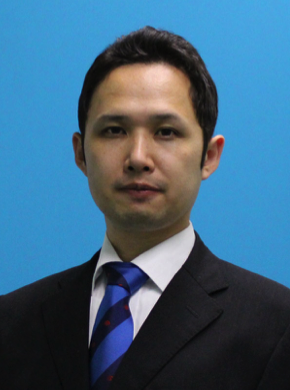
Satoshi Nagata received his B.E. and M.E. degrees from Tokyo Institute of Technology, Tokyo, Japan, in 2001 and 2003, respectively. In 2003, he joined NTT DOCOMO, INC. He worked for the research and development for wireless access technologies for LTE, LTE-Advanced. He is currently a senior research engineer working for 5G and 3GPP standardization. He had contributed to 3GPP for many years, and contributed 3GPP TSG-RAN WG1 as a vice chairman during November 2011 to August 2013. He is currently a chairman of 3GPP TSG-RAN WG1 since August 2013.
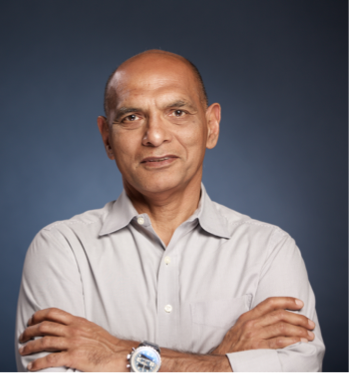
Sanjai Kohli is Director of Engineering at Facebook and responsible for the Connectivity Lab program, Terragraph. Prior to Facebook, Sanjai was a founder and CTO of multiple startups from conception to post- IPO including SiRF (IPO), WirelessHome (acquired by WMUX), and Inovi (acquired by Facebook). SiRF was the recognized leader in GPS and created the consumer GPS market and Inovi created multi-gigabit mmwave wireless networks based on commodity radios. Sanjai is widely regarded as the father of modern commercial GPS is recognized as a Fellow of the IEEE, a Distinguished Alumnus of Indian Institute of Technology Bombay and recipient of the European Inventor Award (2010). Sanjai has 40+issued US patents covering GPS technology, location, wireless communications and transaction security. Sanjai holds a B. Tech from Indian Institute of Technology Bombay and MS from Washington University.
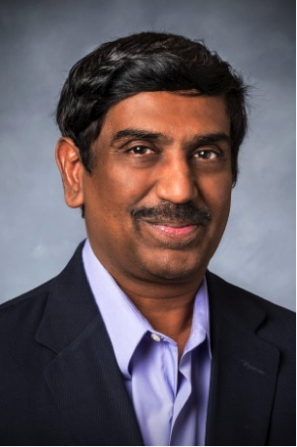
Sailesh Chittipeddi is IDT’s executive vice president, global operations, and CTO, focused primarily on corporate growth and differentiation. In this role he is responsible for the company’s operations, procurement, quality, supply chain, foundry engineering, assembly engineering, product & test engineering, facilities, design automation groups plus PCie and standard products business unit. Additionally Chittipeddi helps IDT leverage its existing strengths to increase corporate value while driving the rapid delivery of new products. Prior to joining IDT, Chittipeddi was President and CEO of Conexant Systems and served on its Board of Directors. He led the company in its transition from a public company to private ownership and through its debt restructuring efforts. Before that, he held several executive roles at Conexant Systems, including COO , co-President, EVP for Operations and Chief Technical Officer, with responsibility for global engineering, product development, operations, quality, facilities, IT and associated infrastructure support. Chittipeddi started his career in technology with AT&T Bell Labs and managed progressively larger engineering and operations groups with AT&T Microelectronics/Lucent and Agere Systems. Chittipeddi also serves as a technology advisor to Pelican Point Capital Management based in Newport Beach, California. Chittipeddi holds five degrees, including an M.B.A from the University of Texas at Austin and a Ph.D. in physics from The Ohio State University. Chittipeddi has earned 64 U.S. patents related to semiconductor process, package and design, and has had nearly 40 technical articles published.

Charlie Jianzhong Zhang is a VP and head of Standards and Mobility Innovation Lab with Samsung Research America, where he leads research, prototyping and standards for 5G cellular systems and future multimedia networks. He received his Ph.D. degree from University of Wisconsin, Madison. From August 2009 to August 2013, he served as the Vice Chairman of the 3GPP RAN1 working group and led development of LTE and LTE-Advanced technologies such as 3D channel modeling, UL-MIMO and CoMP, Carrier Aggregation for TD-LTE, etc. Before joining Samsung, he was with Motorola from 2006 to 2007 working on 3GPP HSPA standards, and with Nokia Research Center from 2001 to 2006 working on IEEE 802.16e (WiMAX) standard and EDGE/CDMA receivers. Charlie is a Fellow of IEEE.